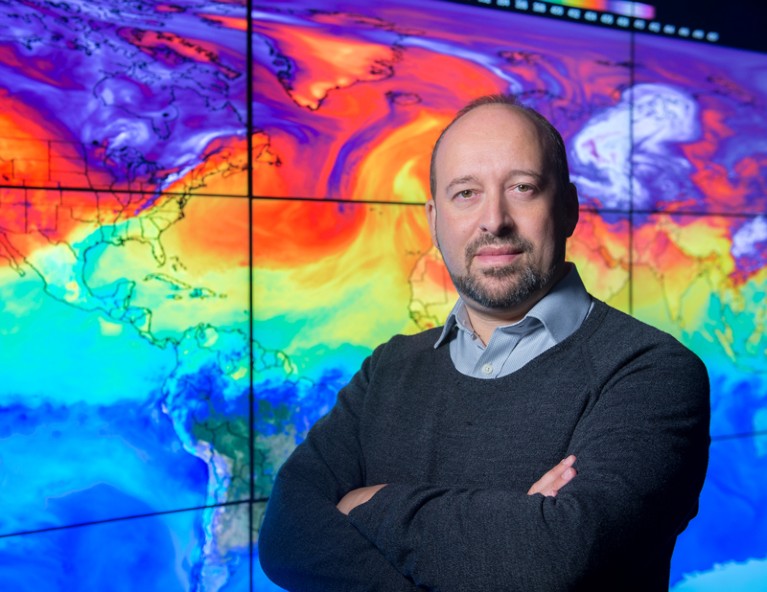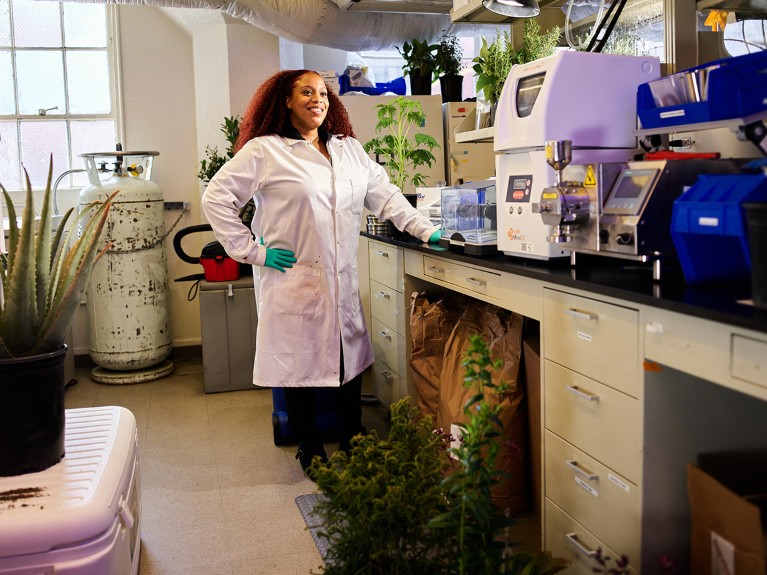Hello Nature readers, would you like to get this Briefing in your inbox free every day? Sign up here

Gavin Schmidt is NASA’s first climate adviser.Credit: NASA
NASA levels up to fight climate change
NASA has appointed its first climate adviser and ramped up work on key missions to study how Earth’s climate is changing. Upcoming plans include a US–Indian radar satellite that will track planetary changes, such as shifts in sea-ice cover, and a US—Canadian–French—UK spacecraft that will survey freshwater resources and ocean currents. They will join existing decades-long studies that measure sea-level rise and ice loss. If approved by lawmakers, the US$2.3-billion budget proposed by the administration of President Joe Biden, will go some way to launching NASA’s ambitious ‘Earth system observatory’ of satellites that will track key climate variables.
Swiss funder draws lots for grants
The Swiss National Science Foundation (SNSF), Switzerland’s largest government research-funding agency, has started pulling numbers from a bowl as a tiebreaker to award grants. “In cases of grant applications of similar quality, bias often creeps in and influences the final call,” says Matthias Egger, president of the SNSF. “That is something we’d like to avoid.” The agency will track the long-term outcomes of the winners and losers to learn the impact on peoples’ careers.
Chinese rocket debris stirs up debate
China’s space administration says that what’s left of its Long March 5B rocket has landed in the Indian Ocean near the Maldives. Space observers had raised concerns about the 21-tonne rocket stage’s uncontrolled reentry after the rocket launched the main module of China’s space station, Tiangong, on April 29. China said most of the debris burnt up on re-entry, but it is not known whether any of it also landed on the archipelago. “It is clear that China is failing to meet responsible standards regarding their space debris,” said NASA administrator Bill Nelson.
How to save lives with smartphones
The billions of smartphones in use worldwide offer unprecedented opportunities for disease tracking, diagnostics and citizen science. Examples include apps that enable phone users to monitor COVID-19 symptoms, count disease-carrying mosquitoes and detect microscopic pathogens. They could even help the world to prepare for the next pandemic. “These tools can be incredibly cheap to deploy, and they get real-time insights directly from people on the ground,” says computational epidemiologist John Brownstein. “That kind of data can outpace what traditional surveillance provides.”
‘His mark on the field is indelible’
Evolutionary biologist Thomas Cavalier-Smith, who helped to shape our understanding of the tree of life, has died, aged 78. “His ideas were based on the thesis that we cannot grasp evolutionary history without understanding how all dimensions of a cellular system — function, structure, biochemistry, economy and spatial organization — arose,” writes his former student Thomas Richards. Cavalier-Smith’s hypotheses were challenged and subject to extensive revision — often by himself, says Richards. “The idea that a scientist (indeed any intellectual adventurer) could not completely restructure their understanding, or even destroy their own previous synthesis in response to new data, was anathema to him.”
How to thrive as a pandemic PhD student
If you’re starting a doctoral programme later this year, particularly if your institution is still facing COVID-19 restrictions, plant scientist Ciara O’Brien has some advice. Take ownership of your project, manage your expectations when setting goals, don’t try to mimic your supervisor’s working style — and, optionally, always keep a tub of ice cream handy.
Where I work

Kehinde Apara is a raw-materials research and sourcing associate at Brightseed in San Francisco, California.Credit: Ian Tuttle for Nature
“My bachelor’s degree is in environmental science, but plants are in my bloodline,” says Kehinde Apara, who uses artificial intelligence to analyse plants for their potential health-supporting properties. “My family is from New Orleans, Louisiana, and my grandmother was considered a hoodoo woman, a medicine woman, and was very knowledgeable about plants… I’m really interested in medicine traditions from the Americas — of grandmothers in the Appalachians, for instance — that have not been highly regarded by scientists.” (Nature | 3 min read)
